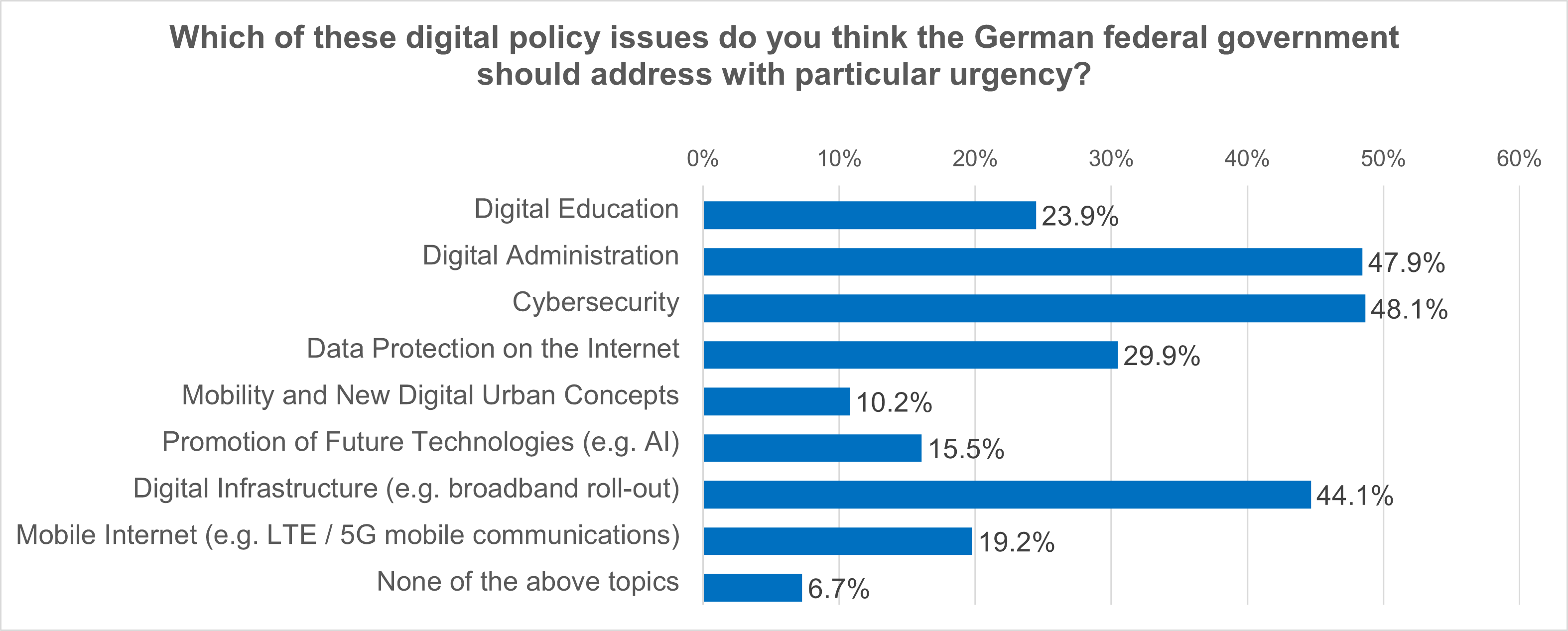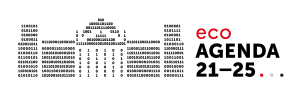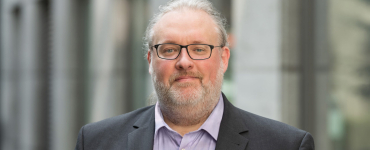eco conducts a 12-point check on Internet policy and calls for an end to the diffusion of responsibility
• eco Chair of the Board Süme: “Germany’s digital project lacks an overall project leader”
• In eleven out of twelve digital policy areas, eco sees only moderate to no progress
• Red light in the areas of digital policy responsibility, data retention and digital education
• Green light in the area of data policy
• Civey survey confirms Internet policy roadblocks from the population’s perspective: many citizens see particular urgency in cybersecurity (48.1%), digital administration (47.9%) and the expansion of digital infrastructures (44.1%)
An Overview of the 12-Point Check
-

Digital policy responsibilities
The fragmentation of digital topics from past legislative periods continues in the traffic light coalition. Instead of diffusion of responsibilities, we need a strong Ministry for Digitalisation that operates across departments and takes the lead in Germany’s strategically relevant digitalisation projects.
-

Digital Strategy
In 2022, the German coalition presented a new Digital Strategy. The majority of the projects included in the strategy have already been initiated. However, factors that need to be accelerated are projects in the areas of administrative digitalisation, the expansion of digital infrastructures, and, in particular, cybersecurity. There are also implementation deficits in the field of digital education. .
-

European and international Internet policy
The German Federal Ministry of Defence published a draft for the international Digital Strategy as a basis for greater involvement at international level. The final version still remains to be seen. The draft bill for the transposition of global minimum taxation was approved by the Federal Cabinet. When it comes to the draft German Digital Services Act (DDG), this can be viewed favourably. Regarding the role of the German Federal Network Agency as Digital Services Coordinator, clarification is required.
-

Digital infrastructure
The coalition is currently negotiating a ban on Chinese components in 5G network infrastructures. A blanket ban without a suitable transitional solution could delay network expansion, significantly increase costs and jeopardise Supply Security. According to the German Federal Ministry of Transport and Digital Infrastructure (BMDV), one-third of the projects in the Gigabit Strategy had already been implemented by July 2023. A draft of the Telecommunications Network Expansion Acceleration Act was sent to the federal states and mailings at the end of August.
-

Artificial intelligence
There is a new AI action plan from the German Federal Ministry of Education and Research (BMBF). The German federal government aims to advocate for pragmatic solutions and against overregulation in the EU AI directive. There are concerns that the coalition could adopt a unique approach with the planned Employee Data Protection Act, at least for workplace deployment. A much-needed comprehensive revision of the AI strategy is not currently planned.
-

Data usage
The cabinet adopted the Data Strategy in August 2023. The right to open data at federal level is positive, but the individual regulations at federal state levels remain a problem. The establishment of a data institute is planned for 2024. The Data Act improves access to non-personal data.
-

Cybersecurity
The draft of the German KRITIS Umbrella Act provides a comprehensible framework for the protection of critical systems, but its relationship to other relevant laws such as NIS2 is unclear. The extent to which security vulnerabilities will be shared with companies and infrastructure operators in the future is currently unclear.
-

Data retention
Following the rulings of the ECJ and the German Federal Administrative Court in Leipzig, the German federal government should repeal the German data retention law. Instead, it continues to debate on the data retention law and Quick-Freeze. In June 2023, the German Federal Criminal Police Office (BKA) was still calling for the reintroduction of the data retention law, while the position of the German Federal Ministry of the Interior (BMI) remains unclear.
-

Sustainable digitalisation
The Energy Efficiency Act has been significantly improved in the parliamentary process, but it still contains regulations that are difficult to achieve. The law was passed in September 2023. It is not yet sufficiently integrated with heat planning.
-

Digital State
The implementation of the German Online Access Act (OZG) by the end of 2022 has foundered. The OZG 2.0 was approved by the cabinet in May 2023, but falls far short of expectations. The status of some projects in the digital identity sector is unclear. In terms of register modernisation, the traffic light coalition made progress regarding the use of the tax ID as an identifier / personal identification number.
-

Professionals / New Work
The German Bundesrat approved the Skilled Immigration Act in July 2023. eco is in favour of the new act as it promotes more equal opportunities and counteracts the shortage of skilled workers. The Mobile Work Act is once again in preparation. The current status is unclear.
-

Digital education
Although the traffic light coalition started out with a comprehensive approach to strengthening digital education, there are very few visible activities. The Digital Pact 1.0 expires in May 2024, and the status of the Digital Pact 2.0 is unclear. At the same time, there are missing points in the coalition agreement regarding promoting media skills.
Berlin, 17 November 2023 – After around two years of the current German “traffic light” coalition, eco – Association of the Internet Industry provides a mixed assessment of the progress in digital policy. According to the Traffic Light Coalition Check, three of the twelve digital policy fields of action are seen as red by the association, i.e. there is no discernible positive development compared to the goals formulated in the coalition agreement. This applies to the areas of digital policy responsibilities, digital education and data retention. Amber lights are available in a further eight fields of action. There is only one field of action which eco sees as being in the green zone: that of data policy.
“The diffusion of responsibility and fragmentation of digital policy responsibilities within the German federal government is increasingly stalling digital transformation in Germany,” says eco Chair of the Board Oliver Süme. “Instead of an ambitious digital policy, after two years of the current German coalition government, we are experiencing at best a stop-and-go.”
According to Süme, there is a lack of a central authority to take on the overall coordination of Germany’s digital project in order to systematically address existing Internet policy issues during this legislative term. “In companies and essentially in any organisation, it is customary for larger projects to be managed by a project leader. This person certainly does not carry out all of the tasks alone, but maintains an overall view and guides the involved players. It should be beyond dispute that digital transformation is a highly complex project. In this respect, I would recommend that someone in the German federal government finally takes the lead, sets goals, establishes priorities, and monitors the implementation of sub-projects. Otherwise, this project is likely to hit a wall sooner rather than later,” says Oliver Süme.
Amber light in eight of twelve Internet policy categories
The association recognises moderate progress in digital policy in eight of the twelve assessed areas, with eco accordingly rating these as amber. These include European and international Internet policy, the expansion of digital infrastructure, as well as measures in the areas of artificial intelligence, sustainable digitalisation, cybersecurity, digital administration and New Work. The association also only gives an amber light to the Digital Strategy launched by the German federal government in 2022. “The coalition government has already started the majority of the projects included in the Digital Strategy, which is indeed positive,” says Oliver Süme. “However, the traffic light coalition must now urgently accelerate initiatives in the areas of administrative digitalisation, the expansion of digital infrastructures and cybersecurity in particular.” In principle, the association welcomes the leverage projects formulated in the Digital Strategy, such as network expansion, the introduction of uniform technical norms and standards and the establishment of secure digital identities.
An overview of the topics
- Digital policy responsibilities
- Digital Strategy
- European and international Internet policy
- Digital infrastructure
- Artificial intelligence
- Data usage
- Cybersecurity
- Data retention
- Sustainable digitalisation
- Digital State
- Professionals / New Work
- Digital education
Green light for Data Strategy & Data Act
When it comes to the German federal government’s progress on Internet policy to date, there is only one category for which eco has assigned a green light – namely, data usage. The association made this assessment based on the Data Strategy adopted in August of this year, as well as the Data Act, which, at the EU level, has improved access to non-personal data. The traffic light coalition is also planning to establish a data institute in 2024. Süme also sees the right to Open Data at federal level as positive. At the same time, however, he emphasises that: “The many individual regulations at federal state level continue to be a problem. For real added value, there needs to be integration with the AI strategy.”
Civey survey: Germans rate cybersecurity as the most urgent task for the traffic light coalition
In addition to the 12-point check on Internet policy, for the third year in a row, eco has commissioned a representative survey from the market and opinion research institute Civey. When asked which areas the traffic light coalition should address most urgently, almost half of the population cited cybersecurity (48.1 per cent), as was also the case in 2022.* “Due to military conflicts, climate change and the pandemic, the past few years have shown that our human race must repeatedly face major uncertainty and crises in the long term,” says Süme. “Especially now, the traffic light coalition must ensure resilience and strong cybersecurity.” Just below the area of cybersecurity, 47.9 per cent of respondents also consider the improvement of digital administration as particularly urgent. The expansion of digital infrastructure ranks third with 44.1 per cent.

Süme: “The traffic light coalition must not lose sight of digital policy coalition goals”
The points that fall in the middle range of the Civey survey do not fare much better. Just under a third of respondents want more data protection on the Internet (29.9 per cent); just under a quarter want more digitalisation in education (23.9 per cent). A further 15.5 per cent consider the promotion of future technologies such as AI to be particularly urgent. Süme: “The German federal government must not lose sight of its ambitious digital policy goals set out in the coalition agreement. Instead of gridlock in Internet policy, we now need a clear path for digitalisation.”
* * The market and opinion research institute Civey surveyed around 5,000 people on behalf of the eco Association between 25 and 27 October 2023. The results are representative of the citizens of the Federal Republic of Germany aged 18 and over. The statistical error is 2.5 per cent. The survey in 2022 was conducted from 9 October to 8 November. The 2021 survey was conducted from 2 to 29 September. Here too, the number of people surveyed was around 5,000 and the statistical error was also 2.5 per cent.




